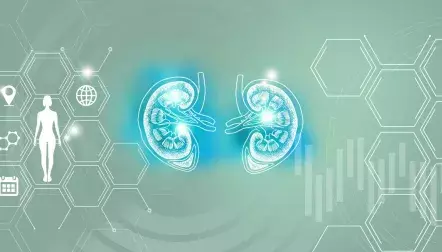
Glucagon-like peptide-1 receptor agonists (GLP-1 RAs)
- Medically reviewed by
- AKF's Medical Advisory Committee
- Last updated
- February 4, 2025
What are glucagon-like peptide-1 receptor agonists (GLP-1 RAs)?
Glucagon-like peptide-1 receptor agonists, or GLP-1 RAs, are a class of medicines that help manage blood sugar (glucose) levels. They have been approved to treat people with type 2 diabetes, obesity, and chronic kidney disease in people with type 2 diabetes.
There are many different GLP-1 RAs, some common ones include:
- Dulaglutide
- Exenatide
- Liraglutide
- Lixisenatide
- Semaglutide
- Tirzepatide
These medicines mostly come in a shot (or injection) form, which you take once a week or once a day, depending on the type you are prescribed or in a tablet form taken by mouth. They are not insulin, but they help your body use its own insulin better to lower blood sugar levels. They also slow stomach emptying which can have make you feel less hungry and support weight loss.
As of January 2025, Ozempic, an injectable form of semaglutide, has been approved by the FDA as a treatment option for people with kidney disease and type 2 diabetes. This medicine can reduce the risk of kidney disease worsening, kidney failure, and death due to cardiovascular disease. While this is the first GLP-1 RA to be approved for people living with type 2 diabetes and chronic kidney disease, other GLP-1 RAs have also shown benefits to the kidneys in clinical trials.
How do GLP-1 RAs slow down the damage to my kidneys?
GLP-1 RAs slow down the damage to your kidneys. They:
Lower your blood sugar so the filtering units in your kidneys do not become damaged by high glucose (sugar) levels.
Lower protein loss into the urine, an early marker of kidney damage.
Lower scarring and inflammation in the kidneys.
- Lower your blood pressure and level of bad cholesterol or LDL. This can help protect you from heart disease, which can lead to kidney problems.
How do GLP-1 RAs work?
GLP-1 RAs :
- Act like the natural hormone glucagon-like peptide-1 (GLP-1). Hormones are chemicals your body makes to do certain things like grow. GLP-1 hormones are released when you eat and they help control blood sugar.
- Raise insulin levels when your blood sugar gets high. GLP-1 RAs tell your pancreas to release more insulin, which lets sugar go from your blood into your cells for energy.
- Block glucagon, which is a hormone your body uses to raise your blood sugar levels when necessary.
- Slow down digestion, which is how fast your stomach empties after you eat. This means sugar goes into your blood slower, which helps keep blood sugar levels steady.
- Make you feel full longer, which can help you eat less and lose weight.
What are some common side effects of GLP-1 RAs?
Common side effects from GLP-1 RAs include:
Feeling sick to your stomach (nausea)
Diarrhea
Throwing up
Constipation (trouble passing stool [poop])
Stomach pain
Not feeling as hungry as usual
These side effects happen because the medicine affects how your stomach works and how your body processes sugar and food. Most of the time, these side effects go away after your body gets used to the medicine. If they do not go away or they are really bothering you, talk to your doctor.
It is important to talk to your healthcare provider about medicine and medicine management questions you have.

